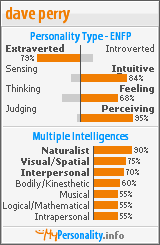It seems that Christmas has come early for the global banking sector. Billions of pounds, gift-wrapped by the central banking Santa, will bring much-needed cheer to the poor and needy in the boardrooms of the City of London and beyond this Christmas. Why this generosity? Because the collapse of the sub-prime mortgage market has blown Capitalism's cosy, exploitative and greedy mechanisms sky high, that's why. Cast your mind back to the £8 billion pounds worth of bonuses awarded in the City this year; reflect on what this annual greed-fest has done over recent years to the property market. Then consider the anguish of those whose homes have been repossessed, or those who see no way of ever being anything other than a tenant of a buy-to-let landlord. Ponder for a moment the real human cost of the sub-prime collapse; stories of eviction, depression, poverty and despair. A system which has wilfully exploited the vulnerable is now being bailed out by governments and central banks. The rich and wealthy clamour for an economic safety blanket, whilst the poor huddle in the cold. Reading Polly Toynbee's excellent article brings the point home sharply, as does some of the correspondence it sparked. It seems that to the corporate greed-mongers none of this matters. The true human cost does not appear on any balance sheet nor does it detract from any bonus. Whilst the progenitors of this nightmare, and their hedge-fund ilk, queue up to buy the latest £35,000 cocktail in a London nightclub, what of those who wonder where the next meal is coming from? For it is amongst them that the Christ-child was born.
According to our infancy narratives, the love and purpose of God is revealed in poverty, is birthed amongst the excluded and threatened ones and stands over and against the oppressor. The cosiness of most Christmas carols gets nowhere near the radical cutting edge of what God was up to in Bethlehem. At Bethlehem the clarion call of the Old Testament - set my people free - is embodied in the one who grows up to challenge and subvert all that diminishes our humanity. In the way he lived his life and through the way in which he died we see that true wealth lies not in power, money or celebrity; that true happiness cannot be bought; that a good life is defined not by what we have but by how we are with each other. These themes have always attracted me to the work of the Iona Community. About ten years ago now I first met Peter Millar, the then Warden of Iona Abbey. Peter's openness, vulnerabilty, humour and passionate faith made a great impression on me. He is a great guy who writes well. Every year Peter sends out a reflection for Christmas, and this year I share it with you. As Peter himself says:
We are connected across the world in these days of Advent and of Christmas. It is many years since Dorothy and I first started to send out a REFLECTION AT CHRISTMAS. They began when our home was in South India. This year, in the midst of much global uncertainty, I have tried to remind ourselves of that hope which is embedded in the very structures of the universe.
A REFLECTION AT CHRISTMAS
Is it not strange to believe in a “spring-time of the spirit” in such uncertain times? To believe that within the possibilities of God goodness can be liberated and our weary hearts restored? Are we foolish to think that the wounded can be healed and that those in the shadows are blessed? Do we stand alone when we assert that meaningless is never the last word, or that a single life can sow God’s seeds for the morrow? Yet even in our questioning the Word becomes real - for against all the odds Christ’s hope remains earthed in our shared and global fragility. Gathered or scattered, we are not abandoned to our hesitations, but invited to that spring-time of the spirit bedded deep in our souls and seen in our faces. For the road is marked by a Love that is stronger than hate, and the songs of life often spring from our suffering.
Peter Millar, Edinburgh, Scotland. December 2007




 This afternoon I spoke at Joyce's funeral. She was only 54 and had been one of the church stewards during my time at Cottingham Methodist Church. Her husband Steve evokes Joyce so well when he says of her: when she came into the house a light went on without anyone flicking a switch. As I said in the service this afternoon, Joyce was the loveliest person you could ever wish to meet. The truth of this was written into the faces and flowed through the tears of a church packed out today with her friends and family. Everyone will remember her smile. As a friend Joyce was incomparable – you couldn’t wish for better. That was the common memory today. Always thoughtful, always loyal, always there for you, always life-enhancing, always a part of you; to remember Joyce is to find a smile on your face and a deep warmth in your spirit. Joyce was like the fizz in champagne. Sparkly, bubbly, overflowing with life and love, she brought to life for those of us who were privileged to know her these words about God:
This afternoon I spoke at Joyce's funeral. She was only 54 and had been one of the church stewards during my time at Cottingham Methodist Church. Her husband Steve evokes Joyce so well when he says of her: when she came into the house a light went on without anyone flicking a switch. As I said in the service this afternoon, Joyce was the loveliest person you could ever wish to meet. The truth of this was written into the faces and flowed through the tears of a church packed out today with her friends and family. Everyone will remember her smile. As a friend Joyce was incomparable – you couldn’t wish for better. That was the common memory today. Always thoughtful, always loyal, always there for you, always life-enhancing, always a part of you; to remember Joyce is to find a smile on your face and a deep warmth in your spirit. Joyce was like the fizz in champagne. Sparkly, bubbly, overflowing with life and love, she brought to life for those of us who were privileged to know her these words about God: 





